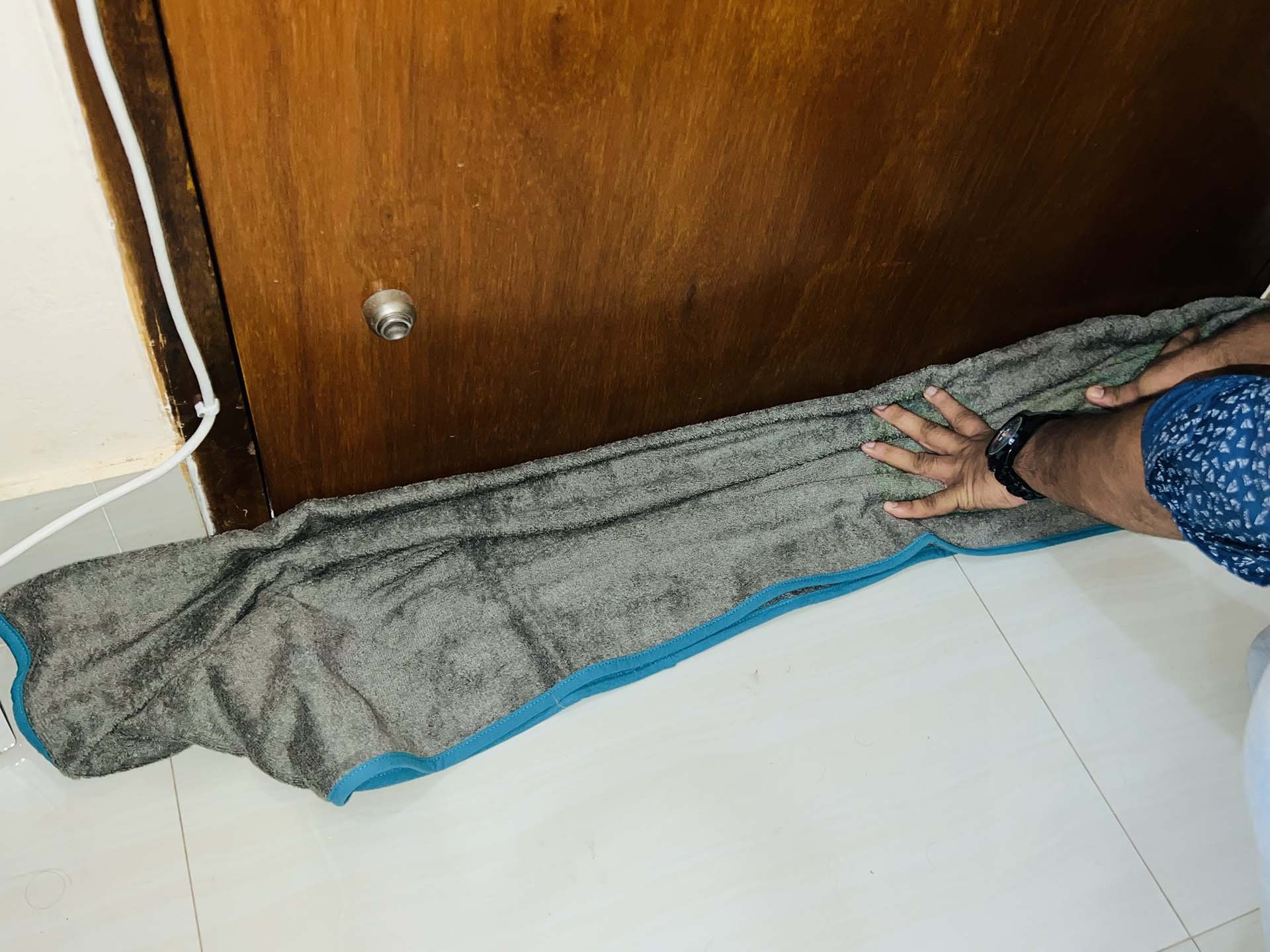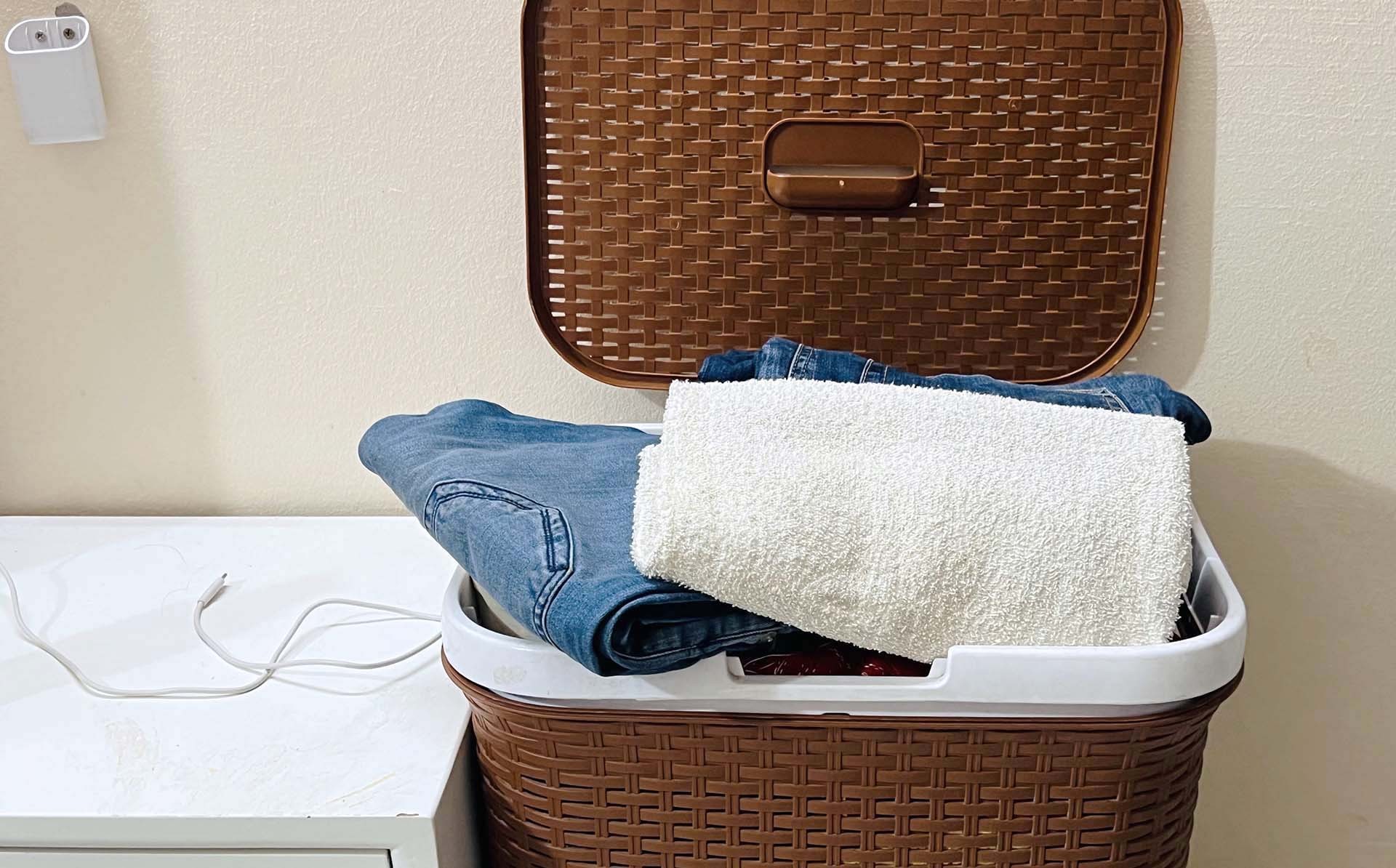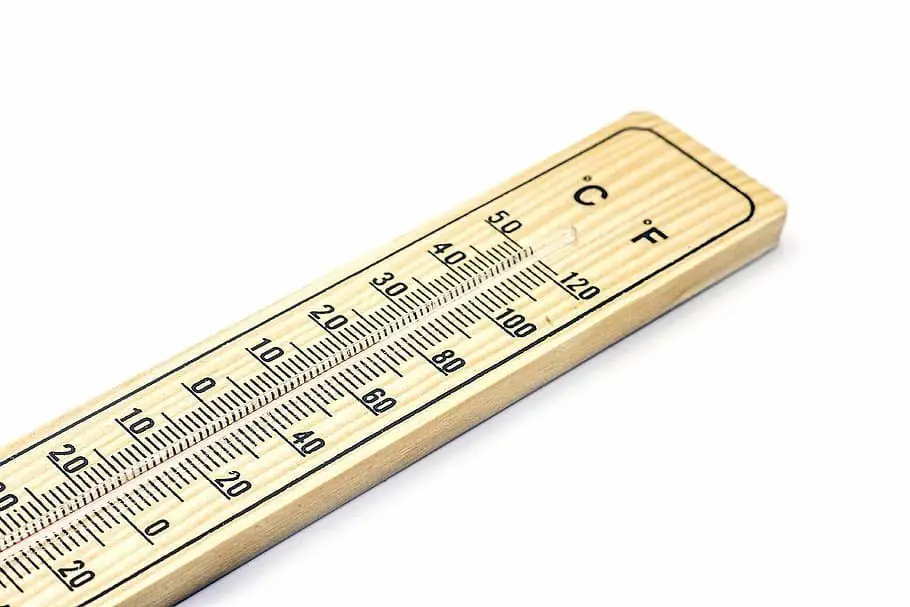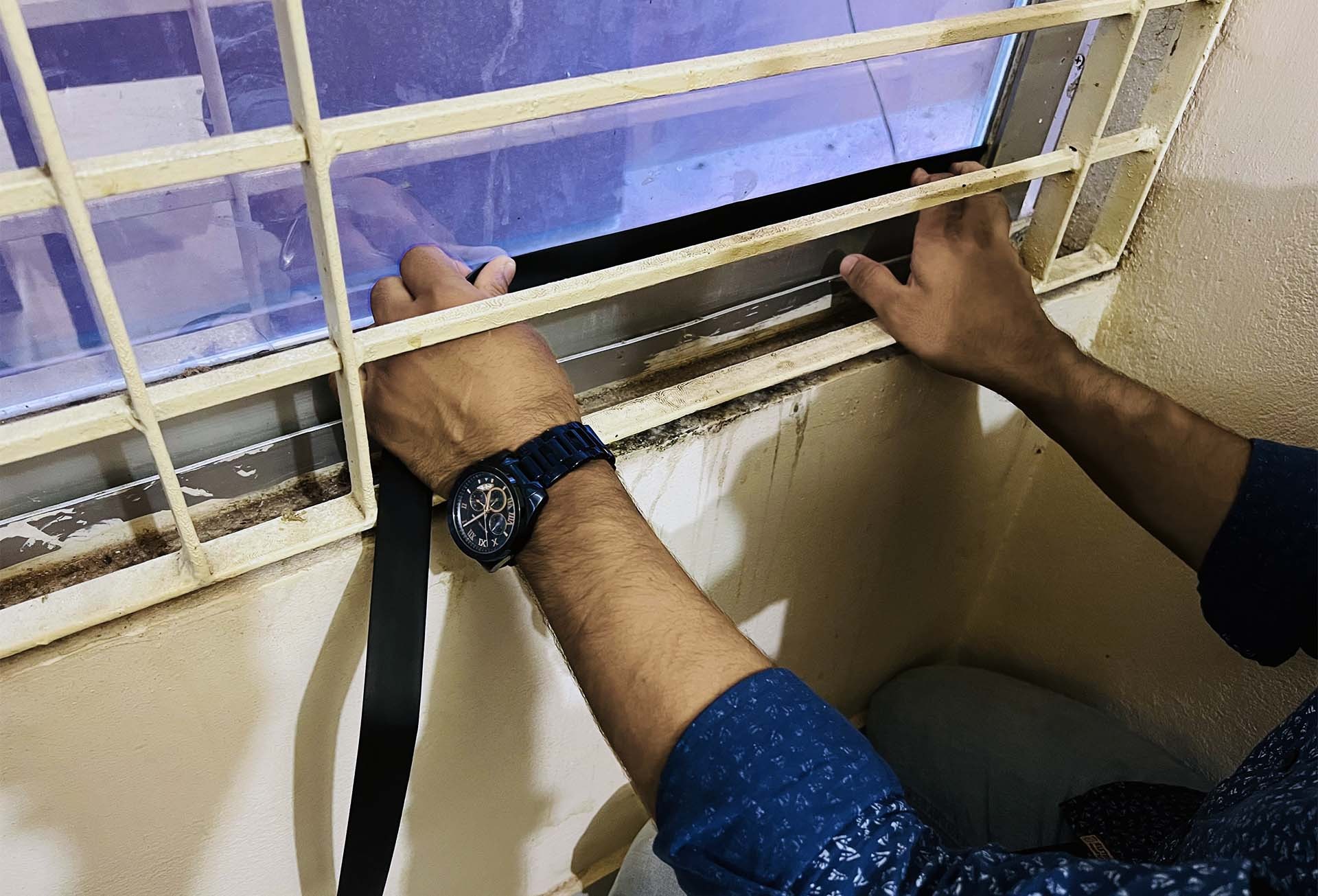External noises disturb people, like traffic, neighbors, and home appliances. Sound waves can enter through the gap under a closed door, which affects privacy and concentration. Can a towel solve this problem? Let’s explore this issue and other options to reduce noise transmission.
To soundproof a door, you must address the gaps where sound enters. Towels are a quick fix, but there are better options. Door sweeps seal gaps at the bottom of the door, while draft stoppers create a barrier to sound. Consider installing a door threshold or using soundproofing materials like acoustic panels or seals for a permanent solution.
I will explain how putting a towel under the door can help block sounds. I will also discuss how you can make your room soundproof using household items; and how you can take it to the next level like a true professional. So without any further ado, let’s get started.
Does Putting A Towel Under The Door Work?
Sound requires a medium to travel. We hear sound because it travels to our ears through the air. Sound cannot travel without any medium. That’s why when people landed on the moon, they had to use the radio to communicate with each other. Sound travels through one of three mediums; air, solid and water.
Most hard and solid materials reflect most of the sound wave and carry some sound through. That’s why we hear less sound behind a closed door. Materials like cloth absorb sound. When you are in a room, the sound comes inside your room through the walls and door, but most of the sound comes through the gap below your door.
So if you want less sound inside the room, try blocking it with something that absorbs sound. And the best household item to do that is towels. We all have towels in our homes. So you can easily make your room soundproof to some extent using towels.
You can also wear other heavy clothes like jeans, curtains, carpets etc. However, towels do not provide an airtight seal, so the soundproofing is limited.
How To Make A Room Soundproof Using Towels?
You can use towels if you are looking for quick solutions to soundproof your room. As discussed above, using towels underneath your door works reasonably well to soundproof your room.
When you have nothing, towels are the best bet to make your room soundproof. During my vacation in Hawaii last summer, my hotel room was boisterous. So I used towels to block sounds, and it worked satisfactorily. So let’s take a look at how I made my room soundproof using towels:
- To soundproof your room like I did, you will require at least six towels. I used six towels, two from the hotel room, two were mine, and I purchased two specifically for soundproofing. The biggest towels work well.
- Put the towels on top of one another. It will create a thick layer of soundproof materials. The thickness depends on the amount of space available under the door.
- You can sew or staple them so that they stick together. However, I couldn’t do that because two towels were from the hotel. Instead, I tied them together using a rope.
- Now place the towel under the door. Push it as far as you can under the door. If you have any remaining towels, place them on the sides to block as much space as possible.
How Can Putting A Towel Under The Door Help You In Various Scenarios?
Putting a towel under the door doesn’t only block sounds; it can be helpful in various scenarios. Here is how putting a towel under your door can be helpful in various cases:
Block Dust Particles
Dust particles can be a nuisance and a health hazard, especially if you suffer from allergies or respiratory problems. Placing a towel under the door can prevent dust particles from entering the room, keeping the air clean and improving overall health.
It is beneficial if you live in a dusty environment or have pets that shed a lot of hair.
Prevent Smoke From Going From Inside To Outside
If you smoke or use any smoking device, you know how smoke can quickly spread to other rooms in your home.
If you place a towel under the door, it can prevent smoke from going outside. Thus, keeping the air outside clean and fresh and saving other members of your household the nuisance.
Help Temperature Control
A towel under the door can help regulate the temperature. Towels reduce the rate at which heat dissipates. So a towel will prevent hot or cold air from escaping, keeping the temperature just right.
Help Humidity Regulation
Humidity can be a problem, especially in areas with high humidity levels. Placing a dry towel under the door will absorb moisture and reduce humidity. If you put a wet towel, it will increase the room’s moisture as it dries out. It’s important to note that while this can help to increase the humidity in a room, it is a short-term solution and should be used in conjunction with other methods, such as using a humidifier.
Why Do You Need A Soundproof Room?
Soundproofing isn’t only a thing of movie theaters or music studios. Every person may need it at some point; due to study, research or sheer contemplation. Here are the reasons you may need a soundproof room:
Privacy
When it comes to creating a private and peaceful home environment, soundproofing is key. Moreover, with soundproofing, you can reduce voice leakage and ensure that your private conversations stay private. Additionally, sometimes we want to unwind and relax at home without being disturbed by loud music or conversations outside the room. You need a soundproof room to spend some private time with yourself.
Increase The Quality Of Life
It’s no secret that soundproofing your home can significantly enhance your quality of life and sleep. Those constantly exposed to noise are more likely to experience a decrease in their ability to read, learn, and comprehend. Excessive noise levels can also impact critical cognitive processes such as problem-solving and memory recall.
Research shows that kids who study in noisy environments are more likely to experience cognitive impairment. And remember the annoyance factor – noise can damper your overall quality of life. As for myself, I’m not too fond of noisy environments.
I have a big family, and people are always in my house. Sometimes it becomes too difficult to focus on my studies or sleep; soundproofing my room is the only option in such situations.
The Comfort Of Your Family Members
Soundproofing isn’t always about yourself. It prevents sounds from going outside your room, so besides giving you privacy, it also gives convenience and comfort to the others in your household. Whenever I listen to music at high volume or play games, I put a towel or two under the door to make my room as soundproof as possible. Sometimes I have friends over; we party all night, listen to music, eat popcorn and have fun. Same deal here; soundproof my room.
Health Concerns
Studies have shown that prolonged noise exposure can lead to cardiovascular disorders like high blood pressure, stroke, and heart ailments. My parents are old with comorbidity, so the last thing I want is to annoy them with loud music from my room. Soundproofing is the way to go.
How Can You Make Your Room Soundproof With Household Items?
You won’t have to circle the earth to make your room soundproof; you can easily do it with everyday household items. Let’s take a look:
Step 1
Covering the floor can help if you want a soundproof room. Thick carpets work great in this case. But carpets also gather lots of dust so I don’t use carpets in my house.
I opt for thick quilts and blankets to soundproof the floor. Sofa cushions and mattresses also work great. Just put them on the floor and pay attention to the corners.
Step 2
Windows are a significant source of sound leakage. If your room has fewer windows, the better. My room has two windows, one is big, and the other is small. I use couch cushions to block the windows.
You can also use pillows or mattresses; they’ll serve the same purpose as couch cushions. If you can shove the pillow or cushion in between the grill and the window, that will improve the soundproofing efficacy.
Step 3
Now that you’ve blocked the door and windows for soundproofing, it’s time for the walls. Hanging heavy curtains over all windows and walls is a great way to block out noise, and the thicker and heavier the curtains, the better.
However, removing the curtains is a hassle, and we don’t always have spare curtains. So my go-to thing is blankets. You can also use comforters, towels, etc. Adding extra layers helps absorb sound and makes your room more soundproof.
Step 4
It is the most challenging part; soundproofing the ceiling. Do the same as you did with the walls. But it would be best to have something stronger to attach the soundproofing materials to the ceiling. Consider using lighter things like towels or thick blankets and strong tapes to attach them to the ceiling.
How To Soundproof A Room Like A Professional?
Using household materials can do pretty good soundproofing. However, if you are serious about making your room soundproof, you have to do it like a professional.
I used the following techniques the first time I decided to go all professional (because I was obsessed with music, especially drums and guitars). I didn’t use the last two techniques as they can only be done when building your house from scratch or remodeling. I only added them because the more you know, the better. Let’s have a look:
-
Add Weather Stripping
Interior doors don’t typically come with weather stripping. You can add some around the perimeter to start with soundproofing your room.
You can use foam insulation tape for a tight seal. Felt weather-stripping is also excellent at reducing noise. To block off any gaps along the floor, consider adding a door sweep or under-door draft blocker to the bottom of the door.
-
Consider Wall Hangings
Hard surfaces reflect sound. That’s why adding some softness to a room is essential to absorb sound and make it quieter. As I have said above, quilts, blankets, carpets, and towels are the go-to materials for DIY soundproofing.
However, you can use sound-absorbing panels to do things like a professional. Attach sound-absorbing panels to the wall and ceiling, and you will see the magic Professionals use these things to make a room soundproof, but you don’t have to be a professional to use them.
-
Buy Rugs
Walls and ceilings aren’t the only hard surface in your room; there’s also the floor. Floors are always made from hard materials; concrete, wood, tiles, mosaic etc.
Using rugs will help make the room soundproof as it will absorb the sound before it reaches the floor and bounces off. I used thick rugs with extra cushioning underneath to ensure my room was 100% soundproof.
-
Absorb Vibrations
Things that make vibration transduce sound to other parts of your house. Suppose you have things that create vibration, like speakers, generators, and gym equipment such as stationary bicycles, treadmills, elliptical trainers etc. In that case, they produce a lot of vibration, which can be transmitted through the floor.
Keep them thick, sound absorbing materials, floor mats, thick rugs etc. I have one treadmill in my room, and I didn’t take any chances; I kept it on a thick gym mat.
-
Use Window Treatments
Windows are a significant source of sound leakage, as I have already said. To prevent that, you can use noise-reducing curtains. They are heavier, thicker and made especially for blocking sound and sunlight from coming in.
If you have a better budget, you can upgrade to window inserts. These are glass panels that you install inside the windows to block noises. In my case, I opted for noise-reducing curtains for apparent reasons, but I recommend going for window inserts as those curtains make the room dark.
-
Add Extra Drywall
One of the most effective ways is to cover the walls and ceiling with a 12-inch-thick sheet of drywall and attach it with a sound-deadening caulk. You could also use sound-deadening drywall, which is easy to install and reduces noise significantly.
It has a plastic polymer layer bonded to the rear surface that is only 5/16 inches thick. Remember that this approach requires considerable time and financial investment. I didn’t do it, but one of the professionals I consulted suggested this method. A friend of mine used this technique and got excellent results.
-
Install Resilient Channels
You’ll need to start by stripping the room down to the studs to use this technique. That’s why I recommend it only when you are renovating your house. Then, you can install some heavy-duty metal strips called robust channels.
These Z-shaped channels go between the wall studs and the drywall, creating a springy, flexible “decoupling wall” that stops sound waves in their tracks. It’s a little more involved than some of the other soundproofing methods, but it’s worth considering if you’re serious about keeping noise out (or in).
-
Rock Wool Insulation
While plenty of options are available, the best approach is to plan and soundproof your house from the start. By utilizing Rockwool insulation instead of the typical fiberglass option, you can ensure that your walls are dense and effective at suppressing sound transmission from outside.
Additionally, Rockwool has other benefits, such as being resistant to fire, mold, and mildew. And if you’re looking to soundproof your interior walls specifically, there’s even a Rockwool product designed just for that purpose. So, don’t let unwanted noise disrupt your peace – consider Rockwool insulation for your home.
Why do you Want Professional Soundproofing?
Although soundproofing yourself works pretty well, it’s not as good as professional soundproofing. There are cases where you should go for professional soundproofing instead of doing it yourself. let’s take a look:
-
Complete Soundproofing
We all know that DIY soundproofing won’t be as foolproof as professional soundproofing. using towels, carpets etc on doors and walls will block sound quite efficiently, but it won’t be as good as professional soundproofing. So if you want complete soundproofing, you’d want to opt for professional soundproofing.
-
large scale projects
If you are a musician or professional voice artist, DIY soundproofing won’t cut it. you will need to make your room soundproof like a professional studio. Professional soundproofing may be expensive, but it goes a long way.
-
diy soundproofing is too much hassle
DIY soundproofing is cheap and works pretty well, but you cannot deny that it’s too much hassle. comparing the extent of soundproofing and the hassle you need to go through, it’s not worth it if you have the budget for professional soundproofing.
FAQ
Does Putting A Blanket Under A Door Reduce Sound?
The blanket will effectively soundproof a door or window. If you use soundproofing devices in your house, ensure they are correctly sealed around the door or window to prevent sound leakage.
Is It Possible To 100% Soundproof A Room?
It is possible to soundproof a room 100%. But first, you have to find the sound’s source, entrance point, and reflection locations. Then you can use things that professionals use (sound booth, acoustic panels etc) to completely soundproof your room. But the best way to do it is when you are building the house or completely renovating it.
How Do I Block Noise On A Shared Wall?
You can use Sound-blocking rubberized paints, specific types of drywall, and thick membranes meant to be put behind a fresh layer of drywall to block noise on a shared wall. Insulation can assist, but more is needed. “Decoupling” your wall from your neighbor’s wall, or increasing bulk (or both), will assist more.
Conclusion
As you have already understood, putting a towel under your door can help, but more effective solutions exist. Investing in proper soundproofing materials and techniques is recommended for more effective soundproofing. However, if you’re looking for a quick fix or a temporary solution, putting a towel under the door can help. It’s all about finding what works best for you and your situation.
Also read – Best Towel To Wipe Down Shower: A Complete Buying Guide 2023





